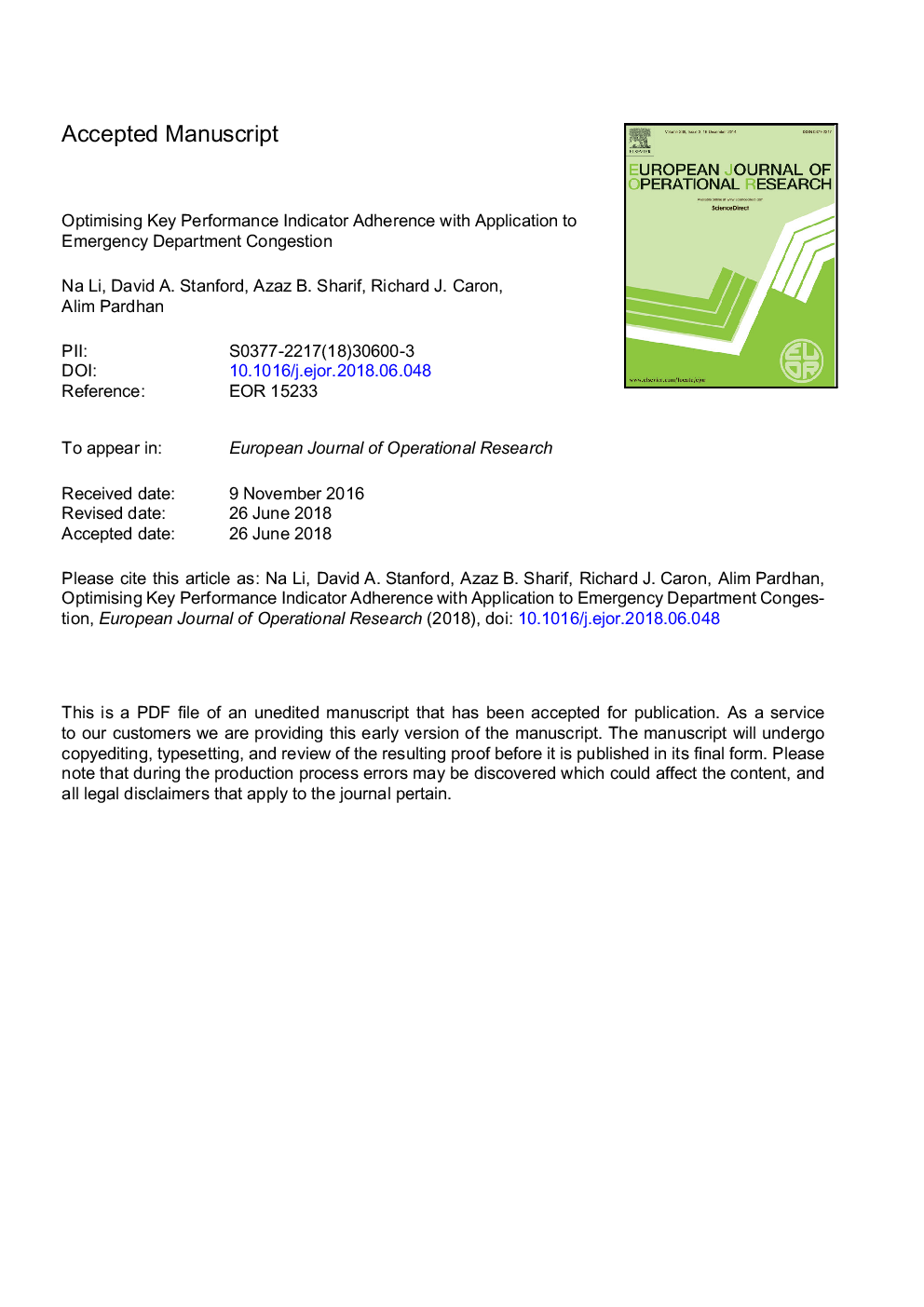| Article ID | Journal | Published Year | Pages | File Type |
|---|---|---|---|---|
| 8953657 | European Journal of Operational Research | 2019 | 32 Pages |
Abstract
Many operational queueing systems must adhere to systems of Key Performance Indicators (KPIs), each comprising a waiting time limit and a level of compliance specifying the minimal fraction of customers that must meet the standard. KPIs are frequently employed as measures of system performance in health care settings. The primary flaw with KPIs is that they represent a system of constraints with no objective function. KPIs say nothing about customers who exceed their limit, so long as such occurrences are sufficiently rare, when in fact customers who miss their time limit in a health care setting are of greater importance, not lesser. We address this flaw by minimising the mean number of customers present who have exceeded their respective limits; we consider also weighted averages of the numbers in excess for each class. We then show that one logical service discipline to achieve this goal is the Accumulating Priority Queueing (APQ) discipline. We carry out numerical examples to investigate the utility of our method. We then apply the optimisation approach to the case of an Emergency Department in Southern Ontario, Canada.
Related Topics
Physical Sciences and Engineering
Computer Science
Computer Science (General)
Authors
Na Li, David A. Stanford, Azaz B. Sharif, Richard J. Caron, Alim Pardhan,
